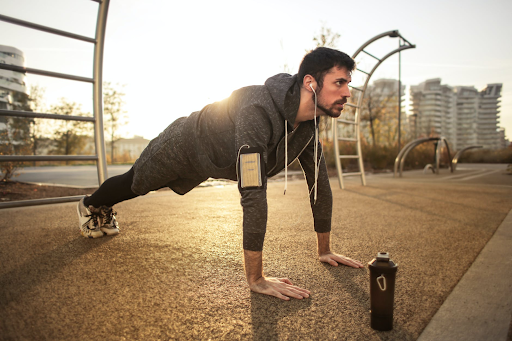If you suffer from obstructive sleep apnea (OSA), you might be looking for natural ways to reduce your snoring during the night. We have the answer for you: exercise.
Whether you realized it or not, your body weight and sleep quality can be related. OSA is caused by your airways being blocked while you sleep, causing you to gasp for air or snore. If you have excess weight in your neck, your airway has a more difficult time remaining unblocked — making it harder for you to breathe comfortably.
A study from the National Institutes of Health found that patients engaging in regular exercise often experience lower frequency and intensity of sleep apnea symptoms. That means regular exercise and even weight loss can help those suffering from obstructive sleep apnea sleep more soundly.
Exercises to Help with Sleep Apnea
Once you get into a routine with exercise, your body will begin to crave the feeling. Not only will exercise provide you with more energy to make you more alert during the day, but it will help you lose or maintain your weight. Obesity plays a significant role in exacerbating sleep apnea symptoms, so successfully managing your weight will help you feel healthier and reduce OSA’s risks.
While cardio and weight training will help you lead a healthier lifestyle and improve your sleep apnea, it’s essential to keep in mind that exercise doesn’t always have to mean you’re pumping iron or running a 5k.
Workouts like stretching or yoga can also lead to better sleep quality. But there are probably exercises you haven’t even considered — exercises to strengthen your throat.
Strengthening the lips, tongue, soft palate, and back of your throat can make it easier for you to breathe at night, improving your sleep quality and reducing your snoring (which means your partner’s sleep quality will improve as well!).
Incorporate some of these throat exercises, also known as myofunctional therapy, into your daily routine to fight sleep apnea:
- Tiger Yell – To strengthen the muscles within your throat, you should try the tiger yell. To do this, you will need to open your mouth as wide as you can and try to lick your chin with your tongue (keeping your tongue outside of your mouth for a minimum of five seconds). Perform this ten times in one sitting.
- Sing – Put on your favorite song, dance around your living room, and sing at the top of your lungs! Loudly singing will help strengthen your upper throat and the muscles of your soft palate.
- Tongue Slides – Sleep apnea is often caused by your tongue collapsing into the back of your throat. Exercise your tongue by pushing the tip against the roof of your mouth and slide your tongue backward. Repeating this 20 times per session will help strengthen your tongue.
- Soft Palate Stretch – To stretch your soft palate, open your mouth as wide as it will go and say “ah” for 20 seconds. After 20 seconds is up, close your mouth for five seconds, and repeat this a few more times.
If you’re struggling to get a good night’s sleep, try incorporating regular exercise and some of these throat exercises into your daily routine to help reduce your symptoms.
Still Struggling to Get a Good Night’s Sleep? Try APAP Therapy
Complement your throat exercise with an AutoPAP machine to ensure you’re getting the best night’s sleep possible. APAP therapy can relieve sleep apnea symptoms for patients.
Reach out to your doctor to determine if APAP aligns with your specific type of sleep apnea to ensure you reap the most benefits from the therapy. ApneaMed can supply the breathing machine you need.

